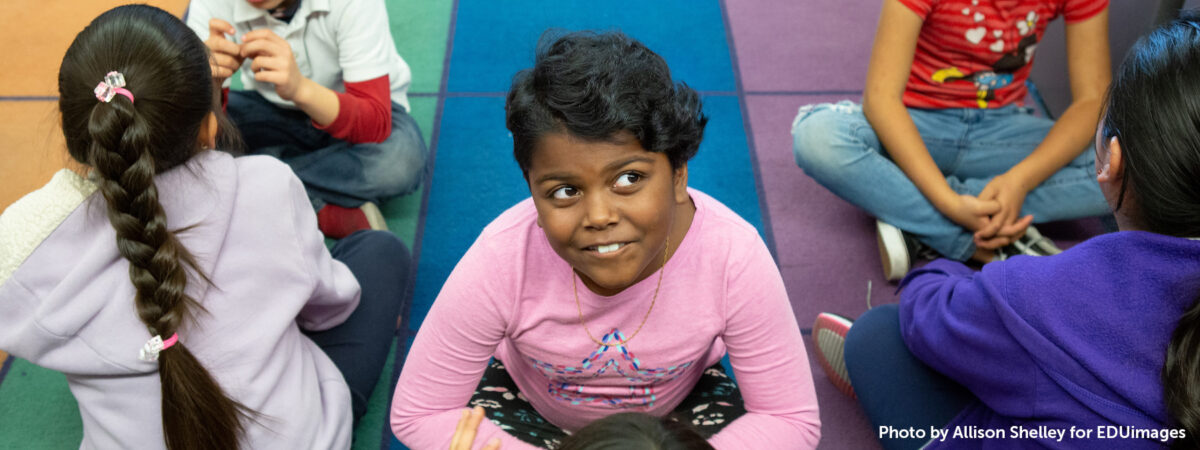
June 29, 2023 | By Emma Mills
Our new report summarizes findings and takeaways from these districts, who made up the Working Group on Social Emotional Learning (SEL) and Learning Differences. This cohort of school districts from around the world were bound by a common goal: to strengthen SEL supports in their districts, with a prioritized focus on students with learning differences.
Starting in January 2021, working group members engaged in deep dives into two international school systems: a virtual site visit to Surrey Schools (British Columbia, Canada) and an in-person convening in Melbourne (Victoria, Australia). To help guide their learning, participants identified an SEL-specific problem of practice facing their district and crafted a unique action plan to address it. The SEL approaches observed in Canada and Australia provided additional insights that further shaped participants’ understanding of what strategies might work in their own districts. Today, the strategies they have implemented as a result of those international learning opportunities are helping to transform the experiences that students in these districts have every day.
The report is grounded in the reflections of working group members and breaks down their key learnings into three sections, which are previewed below.
While the working group formed during a time of significant disruptions in school districts resulting from COVID-19, each of the participating districts reported taking concrete steps toward implementing systemic changes around SEL. These changes were largely inspired by strategies, resources, and tools shared in the working group. El Segundo Unified School District in California, for example, implemented wellness centers at a middle and high school staffed by trained mental health professionals to address the high levels of stress and anxiety students reported experiencing. Fayette County Public Schools in Kentucky has invested resources and time to support staff wellbeing by hiring a trained support specialist for employees and designating staff SEL leads in each school.
Additionally, multiple districts have reported that they have shifted from using SEL as a catch-all term to embracing more specific language such as “wellbeing, gained knowledge about responsive strategies for addressing learning differences, embraced new strategies to address the SEL needs of staff, strengthened understanding of the intersections between SEL and equity,” and more.
In reflecting on changes that each of the participating districts made, three common factors were identified as “readiness factors” contributing to the capacity of districts to implement new strategies and ideas. These include ensuring that the working group aligns to leadership priorities and commitments, intentionally engaging both decision makers and implementors in the working group, and balancing educator empowerment with district curation of resources.
Beyond the insights and learning, many district leaders found immense value in the collaboration and ongoing connections that the group helped to foster. The vast majority of participants expressed that they had formed new connections to colleagues in other districts, and that they planned to connect—or already had—with a colleague from another district. Leaders reported that these connections were beneficial in affirming both the importance of the work in which they were engaged and in confirming the shared experiences and challenges.
“The work of this group and the subsequent report offer examples of the tangible ways in which collaboration, networking, and idea-sharing can boost innovation and lead to real change in a district,” said Heather Singmaster, director of the Global Cities Education Network (GCEN) at Digital promise. “It’s a great reminder of the power of networks like the League and GCEN.”
Read our report, Centering Wellbeing: Advancing Social Emotional Learning for All, to take a deeper dive into each of these takeaways.
By Sharin Jacob and Quinn Burke
By Dr. Kyle Dunbar and Katie Wilczak